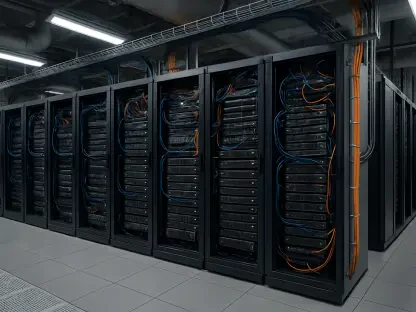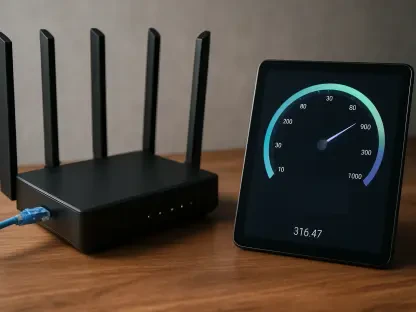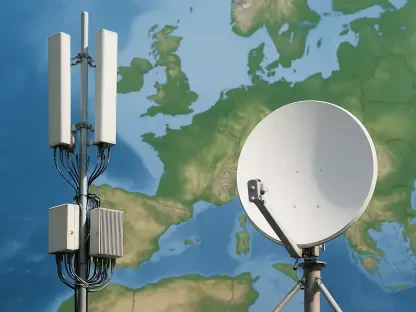A Seismic Shift in Telecom Pricing Strategies
The Indian telecom sector, one of the most competitive markets globally, is witnessing a fresh wave of disruption with Bharat Sanchar Nigam Limited (BSNL), the state-owned provider, rolling out an unprecedented INR1 (US$0.011) 4G recharge plan. Launched as a Diwali promotional offer from October 15 to November 15, this plan targets new customers switching from rival networks, offering unlimited voice calls, 2GB of daily data, and 100 daily text messages for 30 days. This bold move has not only captured headlines but also ignited a fierce debate over predatory pricing, with private telecom giants crying foul. This market analysis delves into the implications of BSNL’s strategy, examines current trends in pricing and competition, and projects potential shifts in the industry’s landscape, shedding light on how such aggressive tactics could reshape consumer behavior and regulatory frameworks.
Unpacking Market Trends: BSNL’s Gambit and Industry Response
The Rise of Ultra-Low Pricing Tactics
In a market characterized by cutthroat competition, BSNL’s INR1 plan stands out as a radical approach to customer acquisition. With a modest market share of 7.86% in the wireless segment, the state-backed entity is leveraging this promotional offer to draw subscribers from dominant private players like Reliance Jio, Airtel, and Vodafone Idea. The plan’s exclusivity to users porting via Mobile Number Portability (MNP) has amplified its impact, with data showing a subscriber surge of 1.4 million for BSNL in August alone, compared to Airtel’s 0.9 million and Jio’s 1.95 million. This trend of ultra-low pricing, while not entirely new, signals a potential resurgence of aggressive strategies by smaller or struggling players aiming to disrupt established hierarchies. The question remains whether such moves can sustain growth or merely serve as short-term gimmicks.
Private Telcos’ Backlash: A Cry for Market Fairness
Private operators, represented by the Cellular Operators Association of India (COAI), have sharply criticized BSNL’s offer as predatory pricing, arguing that it undermines fair competition. They contend that targeting porting customers with such low tariffs violates Telecom Regulatory Authority of India (TRAI) guidelines on MNP-specific packages. This reaction mirrors past disputes, such as the 2016 uproar over Jio’s free 4G data launch, which eventually passed regulatory scrutiny. Today, private telcos fear that BSNL’s pricing could erode their customer base and diminish returns on substantial infrastructure investments. This tension highlights a broader industry trend where pricing wars continue to challenge the balance between innovation and profitability, pushing private players to demand stricter oversight of state-backed competitors.
Regulatory Nuances Shaping Competitive Dynamics
A critical factor in this debate is the regulatory framework governing predatory pricing. Under TRAI’s 2018 amendment, only entities with Significant Market Power (SMP) face scrutiny for such practices, and BSNL, with its limited market presence, falls outside this category. This loophole allows smaller players or state-owned entities to deploy aggressive pricing without immediate legal consequences, creating an uneven playing field. As private telcos grapple with this disparity, there is growing speculation that TRAI might revisit its policies to address non-SMP players if such pricing disputes escalate. This regulatory gap points to an emerging trend where market fairness could become a central issue, potentially influencing future policy reforms and competitive strategies.
Forecasting the Future: Implications and Market Projections
Short-Term Gains vs. Long-Term Stability
Looking ahead, BSNL’s INR1 plan could yield significant short-term gains in subscriber numbers, especially as it builds on the momentum of its indigenous 4G network rollout, which currently includes 92,000 towers connecting 22 million people. Projections suggest that if BSNL maintains service quality post-promotion, a portion of these new users might stay, bolstering its market position ahead of a planned 5G rollout. However, this strategy risks distorting long-term market stability by intensifying pricing wars, potentially forcing private players to lower tariffs at the expense of profitability. Such a scenario could stifle investments in next-gen technologies, creating a ripple effect across the sector over the next few years.
Evolving Competitive Landscape and Technological Race
The Indian telecom market is poised for further evolution as technological advancements like 5G become mainstream. Private operators, already ahead with 5G offerings, might counter BSNL’s pricing tactics with innovative bundles or enhanced service packages to retain customers. Meanwhile, BSNL’s focus on indigenous 4G infrastructure and upcoming 5G plans indicates a strategic push to close the technology gap. Market forecasts suggest that by 2027, competition will increasingly hinge on service quality and network reliability rather than price alone, though aggressive tariffs will likely remain a tool for market penetration among smaller players. This dual focus on pricing and technology could redefine consumer expectations and loyalty patterns.
Potential Regulatory Shifts and Industry Adaptation
On the regulatory front, persistent disputes over pricing fairness may prompt TRAI to tighten guidelines, possibly extending predatory pricing scrutiny to non-SMP entities. Such a shift, if implemented within the next two years, could curb extreme pricing strategies but might also limit flexibility for struggling players like BSNL. Industry projections indicate that without clearer policies, friction between public and private telcos will escalate, potentially hampering collaborative efforts on national telecom goals. Stakeholders might need to adapt by prioritizing transparency in pricing models and advocating for balanced regulations that foster competition without compromising market health.
Reflecting on the Market Clash: Strategic Pathways Forward
Looking back, the controversy surrounding BSNL’s INR1 plan revealed deep-seated tensions within the Indian telecom sector, where aggressive pricing collided with calls for competitive equity. The debate underscored how regulatory gaps and historical disparities shaped market dynamics, often leaving private players frustrated by state-backed strategies. For the path ahead, stakeholders need to consider collaborative advocacy for updated TRAI policies that address pricing fairness across all market players. BSNL must focus on sustaining subscriber trust through consistent service improvements beyond promotional offers, while private telcos could explore differentiation through value-added services. Ultimately, the industry requires a unified push toward innovation and balanced competition to ensure that short-term pricing battles do not derail long-term growth and accessibility goals.









